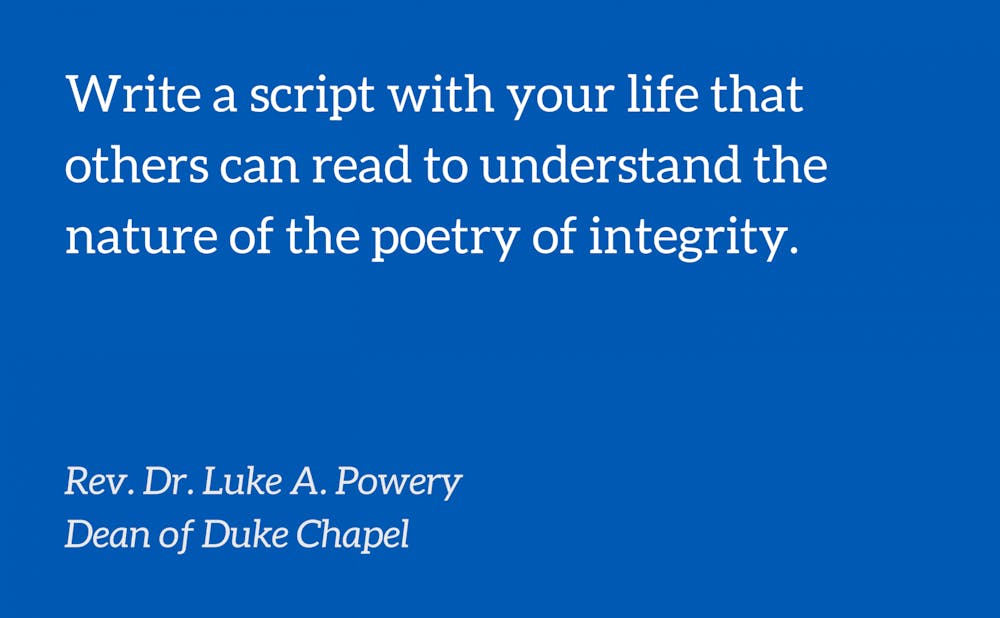From the ancient days to our modern times, poets have played an important part in human civilizations. As Edward Hirsch says in the book "A Poet’s Glossary," “Poetry is a human fundamental, like music.” Robert Graves calls poetry “stored magic.” And poetry can be magical.
One poetic line with an economy of words can speak to a whole cosmos of experience. Sometimes, as you may know, all it takes is one word to heal or challenge you. That’s what poetry can do. Poems do things with words and mean things with words that flattened prose just can’t do. Poetry is actually more than words. Perhaps this explains why former U.S. Poet Laureate Billy Collins said in an interview in "The Paris Review," “While the novelist is banging on his typewriter, the poet is watching a fly in a windowpane.” Poetry is more than writing; it is a seeing and a being.
Poets may be viewed as out of touch. But historically, poets are the ones who’ve been in touch with what is truly real. This is why at funerals, we often turn to a poem like the psalm, “The Lord is my shepherd, I shall not want…even though I walk through the valley of the shadow of death, I fear no evil….”
Why do you think nations and states have poet laureates? Why do you think poets still grace the stages of presidential inaugurations? We need them because we need those who have an ear and eye and sense for what is real and possible.
In the Judeo-Christian tradition, God made worlds through words. Poet Horace Walpole wrote, "God is the perfect poet, Who in his person acts his own creations." God was a maker, which is what the word ‘poet’ means. When God spoke, a poem was created and there was a pattern, meter, symmetry, rhythm and a pure sense of delight. Depending on your theological belief system, if God was a poet, that means we are poems. In one sacred text, we hear that “we are God’s handiwork [poiema]…” We are God’s poem. God does things with words, yet we are more than words. As poems, we are enfleshed art. Although Billy Collins has a traditional understanding of poetry when he says, “Gasoline comes in gallons, cigarettes come in packs and poetry comes in lines and stanzas,” I’m suggesting that poetry comes in human lives too, not just lines.
This hits home for me when I read the biblical writer James or as I like to call him, ‘Bro. Jimmy.’ Bro. Jimmy stresses “being doers of the word and not merely hearers” (James 1). The Greek word for ‘doers’ is poietes, that is, poets or makers. Be poets of the word, doers of the word, makers of the word. Poets are doers, revealing that poetry is not only about lines and stanzas but includes a whole, embodied life. Derek Whitehead said, “The Greeks taught that poiesis was conceived as bringing something from concealment into the full light….” So the kind of poetry I’m discussing happens in plain sight in the light.
Poetry has to be more than words, especially when Bro. Jimmy also teaches us to be slow to speak and to even bridle our tongues. We can be poetic and not use words, if what we take in, we live out; if what we believe, we embody; and, if what we digest, we serve. If our thinking and acting are integrated, then this is the poetry of integrity. This is the integrative life, a state of being whole and undivided as a person when our creeds match our deeds.
Poets make meaning with their lives, not just lines. Poets are doers. Like Marilyn Flower says, “Actions become…poetic traction” and the poet is a poem people see. This poetry in motion can be beautiful when we care for orphans, widows, refugees and those who are most vulnerable among us.
Some may try to “tie [our] poem to a chair with rope” as Billy Collins notes, but society needs active poets who will do justice, love kindness and walk with humility in the world. Are you a poet in this larger, human sense? I hope so because a life without poetry, a life without integrity, is dead and deadly. We’ve seen numerous examples throughout history. Don’t be another one of those statistics. Instead, write a script with your life that others can read to understand the nature of the poetry of integrity.
I’m calling all poets who will make more than lines but put their lives on the line for the good of the world. Any takers?
The Rev. Dr. Luke A. Powery is the Dean of Duke Chapel. His column runs on alternate Mondays.
Get The Chronicle straight to your inbox
Signup for our weekly newsletter. Cancel at any time.

